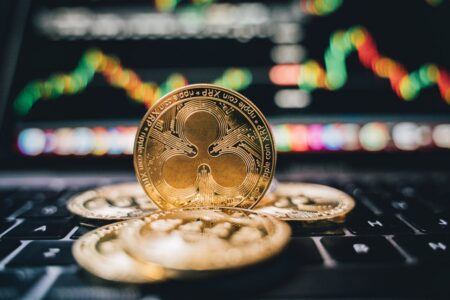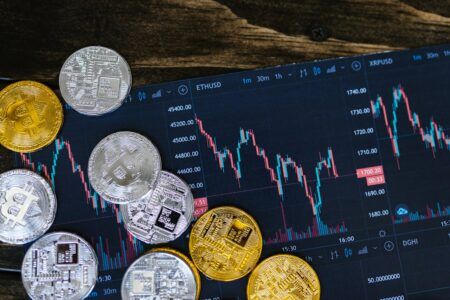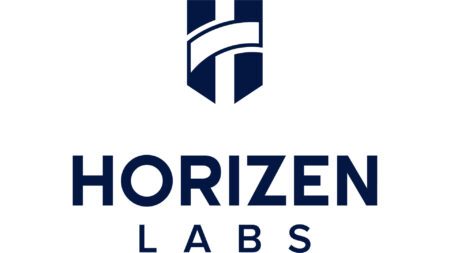Centralized cryptocurrency exchanges are one of the main pillars of the cryptocurrency space. Competition between them forces them to roll out new features to users from time to time and allow them to be the on-ramp of the crypto world.
Those who want to experiment with cryptocurrencies are more likely than not going to sign up for a crypto exchange account to buy their tokens there, and since exchanges have come a long way, they may not even withdraw their funds to their own wallets. Using top crypto exchanges it’s now possible to buy crypto, use it to buy goods and services or earn interest, and never have to withdraw.
As we’ve seen on CryptoGlobe, it’s even possible to stake cryptocurrencies on these exchanges without dealing with any technical hurdles. While all of this is extremely convenient it’s worth pointing out exchanges are a single point of failure and keeping funds on them defeats the purpose of cryptocurrency.
Cryptocurrency exchanges are, at the end of the day, businesses that have to make a profit and comply with regulators. If they don’t, they face fines or even being shut down, One of Bitcoin’s distinctive features was censorship-resistance: a bitcoin wallet cannot be frozen by any entity, but a cryptocurrency exchange account can.
If the trading platform doesn’t comply with a request, its servers may be seized, its bank accounts frozen, and its offices raided. This means that governments looking to cut off dissidents just have to ask the exchange to do the work for them.
Granted, often entities freeze funds because they’re associated with illicit activities, but the power to freeze funds may also be used to silence opponents, hinder competitors, and more.
How Decentralized Exchanges Help
Enter decentralized cryptocurrency exchanges (DEXs). These trading platforms are often developed by firms associated with cryptocurrencies, and in some cases cryptocurrency exchanges have even launched their own trading platforms.
Decentralized cryptocurrency exchanges are hosted in various nodes and not on the servers of a single company, which means that it’s much harder for governments to try and shut down such an exchange. Their distributed nature also means governments or other entities can’t force the platform to freeze someone’s funds.
While the first decentralized trading platforms were hard to use, had very low liquidity, and offered an overall poor user experience, new DEXs have been launching over the last few months to address the issue.
Leading cryptocurrency exchange OKEx, for example, recently announced the launch of its own blockchain, OKChain, with an initial decentralized application on it: the OKEx DEX.
@OKEx’s 70% Token Burn and DEX Testnet Launch Help $OKB Surge 90% @CryptoGlobeInfo https://t.co/ipmGyIMwQt
— Francisco Memoria (@FranciscoMemor) February 11, 2020
OKChain itself has adopted a Delegated Proof-of-Stake (DPoS) consensus algorithm and OKEx has issued a new native token, OKT, to support it. It allows users to create their own decentralized applications, including exchanges and platforms offering other financial services, while giving them complete control over their applications.
Supporting Financial Inclusion
While OKChain is still on a testnet and so far the only decentralized exchange on it is the OKEx DEX, in the future it could support hundreds of decentralized exchanges, competing with each other to gain traction. OKChain also supports smart contracts and cross-chain applications with BTC.
As a result, the OKT token, its native cryptocurrency, could soon be competing with Ethereum, the largest smart contract platform in the cryptocurrency space, for developers. Ethereum it’s worth noting, is the second-largest cryptocurrency by market cap.
Ethereum’s decentralized finance space, in which most top applications let users loan and borrow cryptocurrencies, has over $1 billion worth of crypto in it. In a press release shared with CryptoGlobe Jay Hao, OKEx’s CEO, was quoted as saying:
We believe decentralized finance [DeFi] is the key to financial inclusion and financial freedom for all. That’s why we have longed for unleashing the power of DeFi. OKChain is huge milestone for us, meaning that we are now able to provide an open, low-cost, and autonomous ecosystem for everyone to enjoy the benefits blockchain and decentralization brings.
To sum it up, anyone will be able to transact freely and have access to financial services simply by using these decentralized financial platforms. Decentralized exchanges essentially give users access to a world in which they won’t have to worry about supporting the wrong team, voting for the wrong candidate, or living in the wrong country.
Decentralized exchanges are, in a way, the on-ramp to the decentralized finance space. A space that is already giving its users access to worthwhile interest rates and cryptocurrency-backed loans.
It’s also worth pointing out decentralized exchanges, whether they’re built on Ethereum, OKChain, TRON, WAVES, or any other blockchain, are seen as more secure than centralized exchanges, as users can trade directly from their own wallets.
Featured image via Pixabay.









